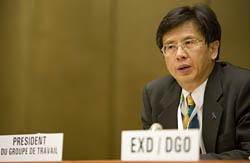The health workforce, arguably the backbone of health systems are indispensable to achieve Universal Health Coverage (UHC). A well-functioning delivery system with adequate numbers of competent health workers contributes to equitable access to services. Health workers, however, are sensitive to three factors: remuneration, working conditions, and career prospects. Disparities in these factors both within and across countries create powerful market forces for internal and international migration, often negatively impacting the provision of health services in underserved areas.
A commentary by RESYST researcher, Viroj Tangcharoensathien, from the International Health Policy Programme, has been published in the International Journal of Health Policy and Management. He argues that the WHO Global Code of Practice on International Recruitment of Health Personnel is relevant to the countries in the South East Asia Region (SEAR) because there is:
- a significant outflow of health workers from several countries and a significant inflow from a few
- increased demand for health workforce in high- and middle-income countries
- slow progress in addressing the “push factors”
Awareness and implementation of the Code in the first report in 2012 was low but significantly improved in the second report in 2015. The 2015 inter-country workshop convened by WHO SEAR to review progress in implementation of the Code was a great opportunity for countries to share lessons on:
- policy implementation
- retention of health workers
- scaling up health professional education
- managing in and out countries
Capturing outmigration of health personnel is notoriously difficult for source countries, but is possible where there is active recruitment management through government to government contracts or licencing the recruiters and making mandatory reporting a requirement.
According to the 2015 second report on the Code, the size and profile of outflow health workers from SEAR source countries is being captured and is now increasingly being shared by destination country professional councils. This is critical information to foster policy action and implementation of the Code in the Region.
The commentary is also available as a videocast.

